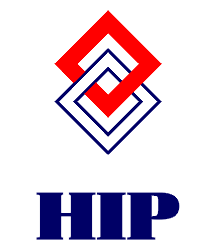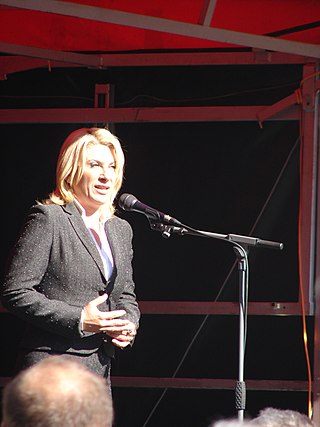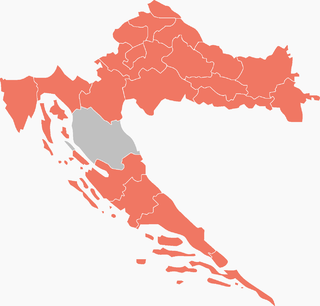
Parliamentary elections were held in Croatia on 23 November 2003 to elect all 151 members of parliament. They were the fifth parliamentary elections to take place since the first multi-party elections in 1990. Voter turnout was 61.7%. The result was a victory for the opposition Croatian Democratic Union (HDZ) which won a plurality of 66 seats, but fell short of the 76 needed to form a government. HDZ chairman Ivo Sanader was named the eighth Prime Minister of Croatia on 23 December 2003, after parliament passed a confidence motion in his government cabinet, with 88 MPs voting in favor, 29 against and 14 abstaining. The ruling coalition going into the elections, consisting of the Social Democratic Party (SDP), Croatian People's Party (HNS), Croatian Peasant Party (HSS), Party of Liberal Democrats (Libra) and the Liberal Party (LS), did not contest the elections as a single bloc; the SDP ran with the Istrian Democratic Assembly (IDS), the Party of Liberal Democrats (Libra) and the Liberal Party, HNS ran with the Alliance of Primorje-Gorski Kotar (PGS) and the Slavonia-Baranja Croatian Party (SBHS), while HSS ran on its own.

The Independent Democratic Serb Party is a social-democratic political party in Croatia representing the interests of the Croatian Serbs. It holds progressive, pro-European stances and is generally considered a centre-left party.

Ivo Sanader is a Croatian former politician who served as Prime Minister of Croatia from 2003 to 2009. He is currently serving a 18-year prison sentence for corruption in Lipovica prison.

The Croatian Democratic Union is a major conservative, centre-right political party in Croatia. Since 2016, it has been the ruling political party in Croatia under the incumbent Prime Minister Andrej Plenković. It is one of the two major contemporary political parties in Croatia, along with the centre-left Social Democratic Party (SDP). It is currently the largest party in the Sabor with 55 seats. The HDZ governed Croatia from 1990 before the country gained independence from Yugoslavia until 2000 and, in coalition with junior partners, from 2003 to 2011, and since 2016. HDZ is a member of the Centrist Democrat International, International Democracy Union, and the European People's Party, and sits in the European People's Party Group in the European Parliament. HDZ is the first political party in Croatia to be convicted of corruption.

Mate Granić is a Croatian diplomat, politician and physician who served as Minister of Foreign Affairs in the Government of Croatia from 1993 to 2000.

Jadranka Kosor is a Croatian politician and former journalist who served as Prime Minister of Croatia from 2009 to 2011, having taken office following the sudden resignation of her predecessor Ivo Sanader. Kosor was the first and so far only woman to become Prime Minister of Croatia since independence.

Dražen Budiša is a Croatian politician who used to be a leading opposition figure in the 1990s and a two-time presidential candidate. As president of the Croatian Social Liberal Party through the 1990s he remains to date the only Leader of the Opposition not to have been from either the Croatian Democratic Union or the Social Democratic Party.

Croatian True Revival was a right-wing political party in Croatia. Founded in 2002 as a splinter party of the centre-right Croatian Democratic Union (HDZ), HIP never won any seats in elections, although it briefly had three MPs in the Croatian Parliament in late 2003. Following poor results in the November 2003 parliamentary election, the party fell into obscurity before being formally dissolved in August 2011.

Parliamentary elections were held in Croatia on 25 November 2007 and for overseas voters on 24 and 25 November. The campaign officially started on 3 November. The President of Croatia announced elections on 17 October and 14 days were allowed for candidate lists to be submitted.

Vesna Škare-Ožbolt is a Croatian politician. She was the 10th Minister of Justice of Croatia from 2003 until 2006. She was the second female holder of that office, as well as the second consecutive woman after Ingrid Antičević-Marinović.

Presidential elections were held in Croatia on 27 December 2009 and 10 January 2010. Twelve candidates participated in the first round, prior to a run-off between first-round winner Ivo Josipović and runner-up Milan Bandić. In the run-off, Josipović won a landslide victory, receiving 60.3% of the vote becoming the first elected president nominated by the Social Democratic Party of Croatia (SDP). The incumbent president Stjepan Mesić, who was first elected in 2000 as the candidate of the Croatian People's Party and re-elected in 2005 as an independent, was ineligible to seek re-election to a third term due to term limits.

The Ninth Government of the Republic of Croatia was the first of two Croatian Government cabinets led by Prime Minister Ivo Sanader. It was announced on 23 December 2003 and its term ended on 12 January 2008. All but two cabinet members came from the ruling Croatian Democratic Union (HDZ) party, following their win in the 2003 parliamentary elections.

Parliamentary elections were held in Croatia on Sunday, 4 December 2011 to elect 151 members to the Croatian Parliament. They were the sixth parliamentary election in Croatia since independence.

The Eleventh Government of the Republic of Croatia was the Croatian Government cabinet led by Prime Minister Jadranka Kosor. It was announced on 6 July 2009 and its term ended on 23 December 2011. The cabinet came into existence after Prime Minister Ivo Sanader abruptly resigned on 1 July 2009, designating Kosor as his successor and making her the first woman to serve as prime minister since Croatia gained independence in 1991. It was succeeded by the Cabinet of Zoran Milanović following the centre-left Kukuriku coalition's success in the 2011 parliamentary elections.

The Tenth Government of the Republic of Croatia was the second of two Croatian Government cabinets led by Prime Minister Ivo Sanader. It was announced on 12 January 2008 and its term ended on 6 July 2009, when Jadranka Kosor formed the 11th cabinet following Sanader's surprise resignation. Cabinet members represented parties of the ruling coalition which was formed following the 2007 parliamentary elections:

The Seventh Government of the Republic of Croatia was the first of two Croatian Government cabinets led by Prime Minister Ivica Račan. It was appointed on 27 January 2000 by a decree of the Acting President of the Republic and Speaker of Parliament, Vlatko Pavletić. The cabinet was confirmed by a parliamentary vote of confidence in the Chamber of Representatives on 2 February 2000, with 122 of 151 Members of Parliament voting for, 1 against and 1 abstaining. Its term ended on 30 July 2002, when it was reconstructed and replaced by Cabinet of Ivica Račan II. The cabinet was formed following the 2000 parliamentary elections, in which the centre-right party Croatian Democratic Union (HDZ) was defeated by a broad coalition of several centre-left parties. This marked an end to HDZ's dominance in Croatian politics since the first multi-party election in 1990. However, the period under Prime Minister Račan was marred with constant disagreements among coalition members, which later led to some parties leaving the ruling coalition. This ultimately paved the way for HDZ's return to power in the 2003 parliamentary elections.
Ana Lovrin is a Croatian politician. She held the post of Minister of Justice in the first and second cabinets under Prime Minister Ivo Sanader, from February 2006 to October 2008. She was the third female holder of that office, as well as being the third consecutive woman after Ingrid Antičević-Marinović and Vesna Škare-Ožbolt.
Opinion polling for the 2011 Croatian parliamentary election started early after the previous election with polls on individual parties. As electoral coalitions were formed, coalition ratings started to be polled as well. The poll results below are listed by category and ordered in reverse chronological order. Major political events are indicated chronologically between individual polls. Concurrent polling was at the time also done for the 2012 Croatian European Union membership referendum.

Croatian Democratic Alliance of Slavonia and Baranja is a regionalist, National conservative political party in the Eastern Croatian region of Slavonia. Until 2015, the HdSSB was considered right-wing populist.

Republic, formally Res Publica in English, is a centrist political party in Croatia. The party's founder and current president is Damir Vanđelić. It ran in the 2024 parliamentary election in a coalition with Focus.

















